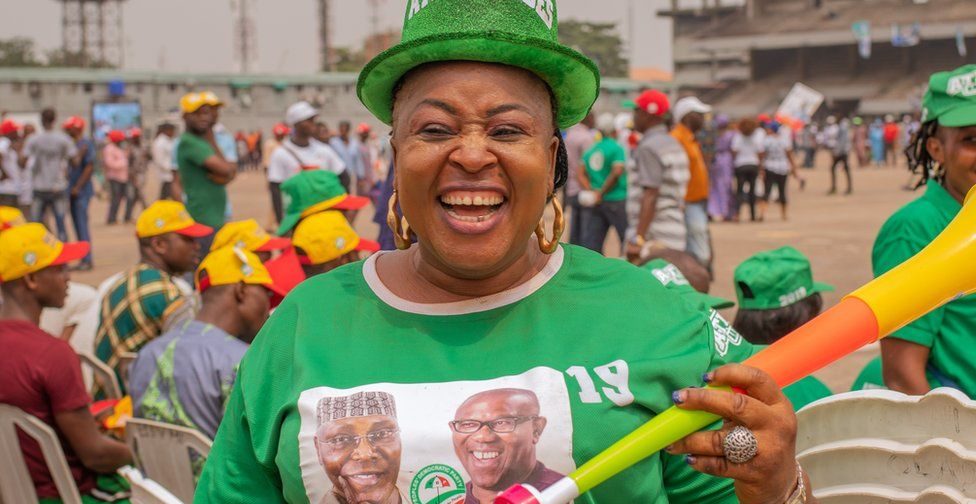
This post highlights the 6 fundamentals of political campaigns in Nigeria that any political party or candidate must follow if they plan to win their elections and achieve their campaign goals. Political campaigns play a crucial role in shaping the democratic process in Nigeria.
As a vibrant and diverse nation, Nigeria’s political landscape is marked by fierce competition among political parties and candidates vying for various positions in the local, state and federal levels.
To effectively navigate this complex environment and connect with voters, politicians must understand the fundamentals of political campaigns in Nigeria. This article aims to explore the key elements that underpin successful political campaigns in Nigeria.
First,
A political campaign refers to a strategic effort by individuals, groups, or political parties to gain public support and secure elected positions in government. It is a structured and organized series of activities designed to influence and persuade voters to choose a particular candidate or party during an election cycle.
Political campaigns typically involve various activities such as developing a clear message, policy and platform, creating campaign materials (such as brochures, flyers, and advertisements), organizing political rallies and public events, utilizing media channels (including television, radio, print, and online platforms), conducting opinion polls and surveys, fundraising, and mobilizing volunteers and supporters.
The primary goal of a political campaign is to sway public opinion and secure the votes. The candidates or political parties usually aim to highlight their strengths, policies, and qualifications while often criticizing opponents or their policies. They engage in debates, public speaking engagements, and media interviews to convey their ideas and convince voters that they are the best choice.
In Nigeria, the outcome of a political campaign determines who gets elected to represent the people in political positions, such as presidents, governors, or legislators. If you are running a campaign, here are some fundamentals of political campaigns in Nigeria that you need to know:
Political campaigns in Nigeria are primarily organized around political parties. Each party has its unique structure, hierarchy, and ideology, which forms the foundation for campaign strategies. Political parties ideologies help to define the core democratic principles, policies, and objectives guiding candidates in crafting their campaign messages and appealing to specific voter segments.
Understanding and aligning with your party’s ideology is crucial for politicians seeking public office in Nigerian elections.
Nigeria’s vast population necessitates effective voter mobilization strategies during political campaigns. Candidates and parties must reach out to voters across the country, especially in rural areas, where accessibility and awareness are challenges.
Grassroots Mobilization efforts involve organizing rallies, town hall meetings, door-to-door canvassing, and utilizing various media platforms to disseminate messages. Furthermore, engaging with community leaders, and celebrity influencers can help garner support and mobilize more voters effectively.
Financing political campaigns remains a significant challenge in Nigeria. Learn how to use our online crowdfunding platform to raise money for your next campaigns. Adequate funds are essential for advertising, logistics, and organizing campaign events. Candidates need to establish a solid financial plan to raise funds from party supporters, individual donors, and other legal sources.
Transparency in campaign financing is also crucial to maintaining public trust and ensure accountability. The Nigerian electoral laws provide guidelines on campaign financing, and adherence to these regulations is essential. Learn more about the campaign finance laws in Nigeria
The media plays a vital role in political campaigns in Nigeria, shaping public opinion and disseminating information. Candidates must utilize various media channels, including television, radio, print, and digital platforms, to reach a wide audience.
Engaging with journalists, conducting press conferences, and utilizing social media platforms can help create a favorable public image and maintain wider visibility. Effective communication strategies should focus on delivering clear and compelling campaign messages that resonate with the electorate.
Campaigns that are informed by data and research tend to be more effective. Candidates must conduct comprehensive research on voter demographics, prevailing issues that matter to the people and public sentiment.
Again, data-driven insights and public opinion research help in formulating targeted campaign strategies, tailoring messages, and allocating resources efficiently. Utilizing modern technology and data analytics tools can provide valuable insights into voter behavior and preferences. You can hire competent team to do the job.
Political campaigns in Nigeria should not only focus on garnering supporters but also prioritize voter education. Many voters in Nigeria are not adequately informed and educated about the electoral process, their rights, and the impact of their choices.
Campaigns should conduct voter education initiatives through workshops, media debates, and public forums to enhance civic engagement and political awareness; while empowering citizens including the physically challenged to make informed decisions on the election day. Learn the importance of civic education in Nigeria.
Political campaigns in Nigeria are complex endeavors that require a deep understanding of the country’s diverse political landscape. By comprehending the fundamentals discussed above, politicians can develop effective campaign strategies to win elections in Nigeria by connecting with voters, mobilizing support, and articulating their vision for a better Nigeria.
Successful political campaigns are rooted in ideology, prioritizing voter mobilization, adhering to campaign financing regulations and INEC guidelines, utilizing effective media and communication channels strategically, and engaging with grassroots communities, leveraging secure fundraising platforms, research and data analysis, hiring the best campaign team and promoting voter education.
By embracing these fundamentals of political campaigns in Nigeria, a candidate will achieve his or her campaign goals. Nigeria’s political landscape thrives on grassroots engagement. Successful campaigns should invest significant effort in connecting with local communities, understanding their concerns, and addressing their needs. This should involve interacting with community leaders, attending social events, and participating in local development initiatives. Building trust and forging personal connections with voters are essential elements of a winning campaign strategy.